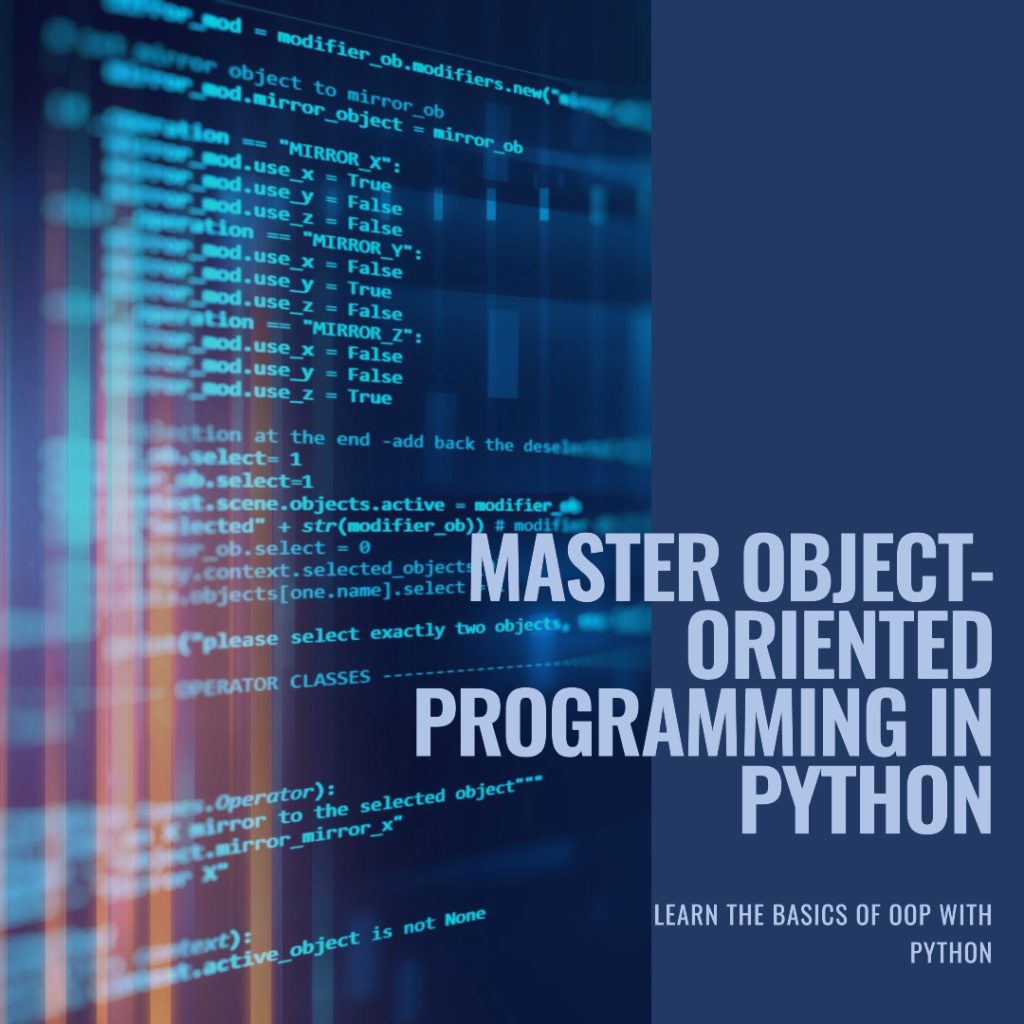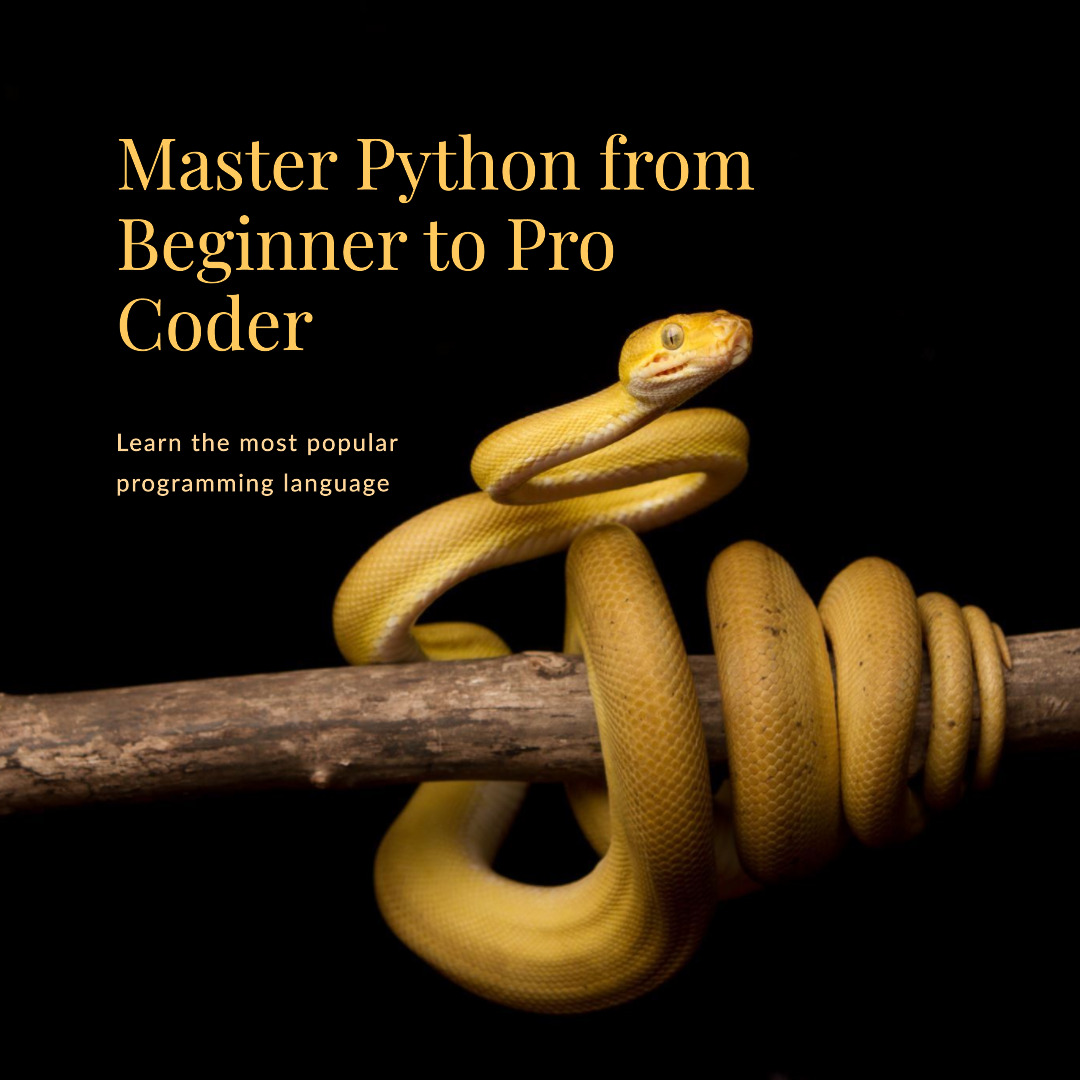Python is an incredibly versatile and widely used programming language that offers a smooth learning curve for beginners and powerful tools for professionals. Whether you’re just starting your coding journey or aiming to become a master in Python coder, this article will guide you through the essential steps and strategies to help you master Python. We’ll explore Python’s versatility, the learning path from a beginner to a pro coder, and the key tools and resources to assist you on your journey.
The Versatility of Python
Python is often praised for its versatility, and for a good reason. It’s a high-level, interpreted language that is known for its readability and ease of use. This makes it an ideal choice for beginners who are just dipping their toes into the world of programming. At the same time, Python is a favorite among experienced developers for its extensive libraries and frameworks. You can use Python for web development, data analysis, machine learning, automation, and much more.
Python’s simplicity in terms of syntax and readability encourages developers to focus on problem-solving rather than worrying about complex code structures. If you’re a beginner, you’ll find Python to be a welcoming language that won’t intimidate you with cryptic symbols and jargon. As you progress on your journey to becoming a pro coder, Python’s adaptability ensures you have the right tool for various tasks.
Setting Up Your Python Environment
Before you start mastering Python, you need to set up your development environment. Fortunately, Python makes this process relatively straightforward. The first step is to install Python on your system. Python is available for all major operating systems, including Windows, macOS, and Linux. You can download the latest Python version from the official website, and it often comes pre-installed on many Linux distributions.
After you’ve installed Python, you might want to choose a code editor or integrated development environment (IDE). Popular choices include Visual Studio Code, PyCharm, and Jupyter Notebook. Each of these offers unique features and integrations to enhance your coding experience. As you become more proficient in Python, you can explore the vast world of Python packages and libraries to customize your environment further.
Learning the Basics: Variables, Data Types, and Control Structures
For beginners, mastering Python starts with understanding its fundamentals. You need to learn about variables, data types, and control structures. These are the building blocks of any programming language, and Python is no exception.
- Variables: In Python, variables are used to store data. You can assign different types of data to variables, such as numbers, strings, and lists.
- Data Types: Python supports various data types, including integers, floating-point numbers, strings, and booleans. Understanding these types is essential for manipulating data effectively.
- Control Structures: Python uses control structures like loops and conditionals to control the flow of a program. You’ll need to grasp concepts like if statements, for loops, and while loops.
Functions and Modules
Once you have a solid grasp of Python’s basics, it’s time to dive into more advanced topics. Functions and modules are essential concepts that will help you write organized and efficient code.
- Functions: Functions allow you to break down your code into reusable blocks. You can define your functions to perform specific tasks and call them whenever needed. This approach makes your code more readable and maintainable.
- Modules: Python’s strength lies in its extensive library of modules. Modules are pre-written code that you can import into your programs to extend their functionality. You can find modules for various purposes, from data analysis with NumPy to web development with Flask.
Data Structures: Lists, Dictionaries, and Sets
Python provides several built-in data structures to help you manage and manipulate data efficiently. These data structures are fundamental for any Python developer.
- Lists: Lists are ordered collections of items. They are versatile and can hold different types of data, making them suitable for a wide range of applications.
- Dictionaries: Dictionaries are key-value pairs, allowing you to store and retrieve data using unique keys. They are handy for tasks like building databases or configuring settings.
- Sets: Sets are unordered collections of unique items. They are useful for tasks that require distinct elements, such as removing duplicates from a list.
Object-Oriented Programming (OOP) in Python
Python supports object-oriented programming (OOP), which is a powerful paradigm for organizing code. Learning OOP concepts, such as classes and objects, inheritance, and polymorphism, will take your Python skills to the next level.

- Classes and Objects: In Python, everything is an object. You’ll learn how to define your own classes and create instances (objects) from those classes.
- Inheritance: Inheritance is a mechanism that allows one class to inherit properties and methods from another class. It promotes code reusability and simplifies code maintenance.
- Polymorphism: Polymorphism enables you to write flexible and extensible code. You can create functions and classes that can work with multiple data types, enhancing code efficiency.
Going Pro: Advanced Python Topics
Becoming a pro Python coder requires diving into advanced topics and exploring specific domains. Here are some areas you might consider specializing in:
- Web Development: If you’re interested in building web applications, frameworks like Django and Flask are excellent choices.
- Data Science and Machine Learning: Python has a strong presence in data science and machine learning. Libraries like pandas, scikit-learn, and TensorFlow are crucial for these fields.
- Cybersecurity: Python can be used for ethical hacking and security tasks. You can explore libraries like Scapy and PyCryptodome.
- Automation and Scripting: Python is an excellent choice for automating repetitive tasks and scripting. The
osandshutilmodules are handy for file operations, while theseleniumlibrary is ideal for web automation. - Game Development: Python can be used for creating games using libraries like Pygame.
- Data Visualization: Libraries like Matplotlib and Seaborn make data visualization a breeze.
- DevOps and System Administration: Python is valuable in automating deployment and system management tasks. Libraries like Fabric and Ansible can be beneficial.
- IoT (Internet of Things): Python is often used for programming IoT devices, thanks to libraries like MicroPython and CircuitPython.
Consultation: How to become Master In Python
Mastering Python is an achievable goal, whether you’re starting from scratch or looking to become a pro coder. The journey begins with a solid foundation in Python’s fundamentals, including variables, data types, and control structures. As you progress, you’ll explore more advanced topics like functions, modules, data structures, and object-oriented programming. These skills will equip you to tackle real-world challenges and explore various domains within the programming world.
Python’s versatility ensures that you’re not limited to one path. You can specialize in web development, data science, cybersecurity, automation, game development, data visualization, system administration, IoT, or any other area that piques your interest. The key to success is continuous learning and practice, so dive into Python and enjoy the journey from beginner to pro coder.







